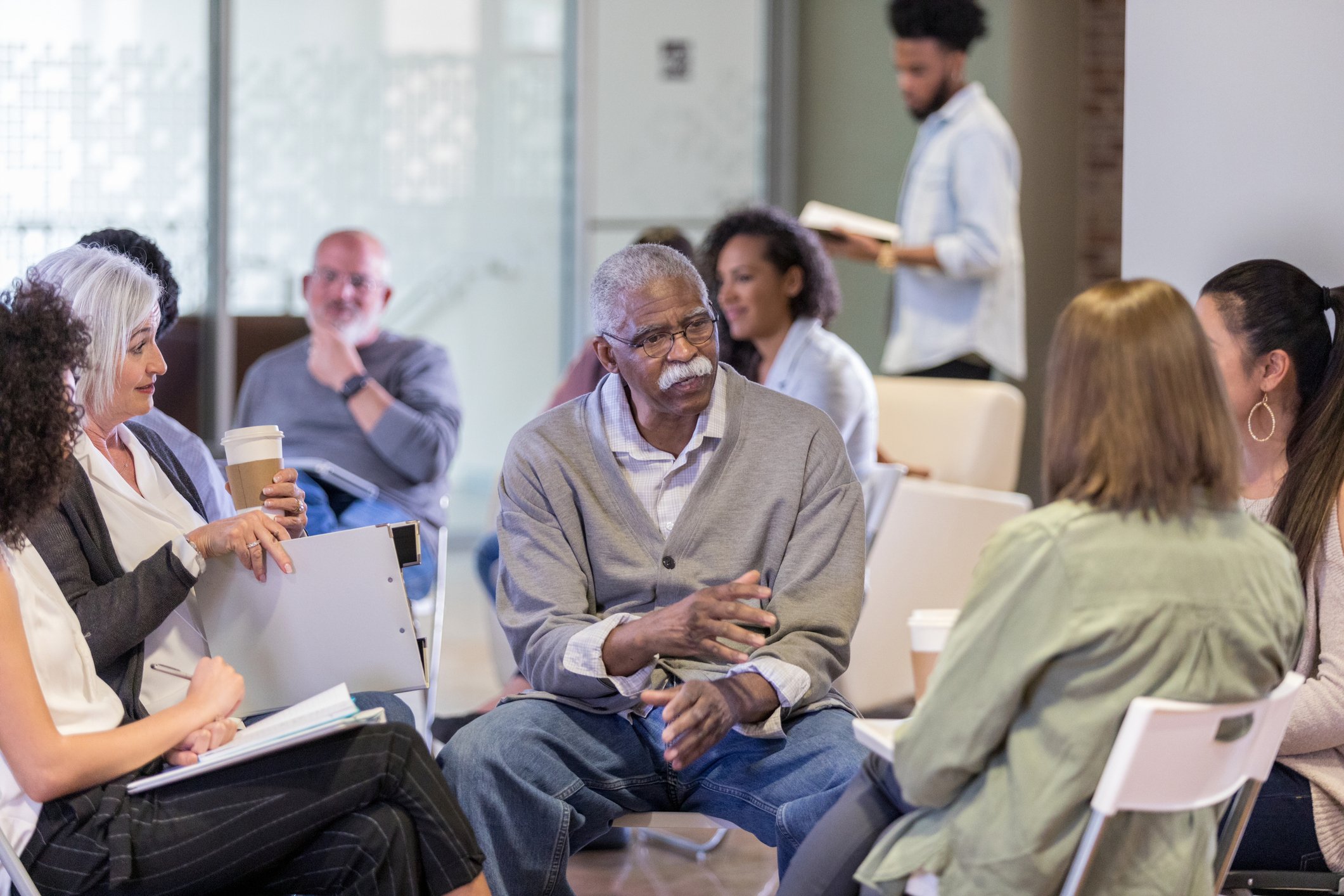Participatory Action Research as a Tool for Decolonising Research
By Dr. Caroline Lenette
Caroline Lenette is Associate Professor, School of Social Sciences and Deputy Director of the Big Anxiety Research Centre. She is a leading interdisciplinary researcher focussing on participatory methods and social justice informed research especially with refugee-background co-researchers. Her scholarship centres on how co-research through creative and artistic means can influence decision-makers and policymaking towards meaningful change. Caroline explores how ethics in research practice is conceptualised in participatory research. She has a passion for arts-health research. Caroline is the author of Arts-based methods in refugee research: Creating sanctuary (2019, Springer) and Participatory Action Research: Ethics and Decolonization (Oxford University Press, 2022).
Decolonising research
For many years, as a migrant settler living on Bedigal land in so-called Australia, I thought that decolonisation was mainly a concern for Indigenous and decolonial scholars in the humanities. It is only in recent times that I began questioning my complicity with colonial structures and institutions as an academic, both as an educator who teaches research methods and as a researcher who uses creative, participatory methods. I engaged with accessible scholarship on decolonising research, including Linda Tuhiwai Smith’s Decolonizing Methodologies, Alison Phipps’ Decolonising Multilingualism, and Carolina Alonso Bejarano and colleagues’ Decolonizing Ethnography, which made me more aware of the responsibility of all researchers to question their complicity with research principles and practices that reinforce rather than disrupt the colonial project. Decolonising the academy and research methodologies requires honest interrogation of our approaches and explicit commitments to adopting a decolonial framework.
Decolonisation seeks to redress and (where possible) reverse the impacts and persistent harms of colonisation, which are political, social, cultural, environmental, historical, mental, spiritual, and emotional (Wane, 2006). It refers to the struggle for self-determination and sovereignty. In academic contexts, debates on decolonisation recognise that academic institutions are built on colonial principles, which still permeate how we teach and research. Decolonising the academy and research methodologies means ceding space for contextual knowledge systems that have been—and continue to be—erased or marginalised as a direct consequence of colonisation. As researchers, we have a moral and ethical obligation to question our privileges, positionalities, and practices, and how we build careers on the legacies of colonisation.
Interrogating our complicity in maintaining the status quo through our research practices is especially relevant in settler colonial contexts and in former colonies. We remain complicit when we do not question the origins of our methods, when we apply methods indiscriminately across sociocultural contexts without thinking about the impact on participants or co-researchers, when we deliberately choose methods that we know are misaligned with co-researchers’ cultural frames of reference, or when we work in teams where commitment to decolonisation and decolonial practices is not a priority.
Decolonisation is not a peripheral but central concern to social research for change. If we think about the colonial aspects of our research as an afterthought, then it is likely that we have already implemented initiatives that perpetuate some of the problems we are trying to address. Attention to decolonising our practices should be at the forefront of discussions from conceptualising and designing research projects, right through to sharing findings with diverse audiences.
The potential of Participatory Action Research (PAR)
Participatory Action Research (PAR) models have much potential to contribute to decolonising research and the academy, given PAR’s collaborative aims, emphasis on the relational, and commitment to prioritising participant or co-researcher-led agendas and knowledges. What distinguishes action research from other models is this impetus to act upon the findings of the collaboration to effect change, which can be individual, social, regional, national, or international, or a combination of those. Change should not be determined based on the agendas of funders, academic researchers, politicians, or institutions, but should instead reflect the wishes of participants or co-researchers.
In my book, Participatory Action Research: Ethics and Decolonization (Lenette, 2022), my aim was to counter scholarship that uses terms such as participation and co-research without fully engaging with their meanings and what they imply in practice, or that overlooks the importance of reflecting on positionality, privilege, cultural safety, power dynamics, and harmful research lenses. I was not interested in writing a step-by-step instruction manual to reinforce the myth that research methods are linear, simple, and neutral tools, with afterthoughts on working effectively in cross-cultural contexts. I wanted to keep decolonisation at the heart of my writing.
The book draws explicit links between imperialism and colonisation and how these frame dominant research approaches to this day. We know that many research practices are still broadly underpinned by this notion of superiority, of treating participants as subjects, of imposing outsider gazes onto the lived experiences of people who are often multiply marginalised individuals with complex circumstances. The book deliberately focusses on the nuances, politics, and complexities of participatory approaches and highlights PAR’s potential as a decolonial research method to counter the damaging aspects of colonialist-infused research.
For instance, I described how PAR, grounded in practices in majority-world countries, has been whitewashed and misappropriated in white-majority contexts. Due to the dominance of western-centric and anglophone scholarship on this model, PAR is often mistaken for an approach developed in western countries to “empower” or “give voice” to marginalised folx, especially in majority-world nations. However, the strength of PAR as a decolonial tool lies precisely in its origins as a community-based, reflexive, and culturally grounded approach in contexts such as Latin American, African, and South Asian countries. I state: “PAR is an excellent tool to realize the transgressive potential of research that challenges the inherently western academy because of its roots, values, and practices.” (Lenette, 2022, p. 27). If we are unaware of the origins and underpinning principles that shape our methods, we continue to perpetuate harmful approaches because we are not reflexive about our research practices, and we cannot identify what needs to change.
Debates on decolonising methodologies should not be merely conceptual. One of the reasons why progress has been very slow on the decolonisation agenda is that there is a lack of practical advice on how exactly we can decolonise research. Decolonial scholarship tends to be jargonistic, and conceptual discussions can alienate researchers who seek practical advice on how we should interrogate academic norms and modify research approaches. We must pay close attention to these issues if we want to see meaningful progress.
References
Alonso Bejarano, C., López Juárez, L., Mijangos García, M.A., & Goldstein, D.M. (2019). Decolonizing ethnography: Undocumented immigrants and new directions in social science. Duke University Press.
Lenette, C. (2022). Participatory Action Research: Ethics and Decolonization. Oxford University Press.
Phipps, A. (2019). Decolonising Multilingualism: Struggles to Decreate. Multilingual Matters. https://doi.org/10.21832/9781788924061
Tuhiwai Smith, L. (2021). Decolonizing methodologies: Research and Indigenous peoples (3rd ed.). Zed Books.
Wane, N.N. (2006). Is decolonization possible? In G.J.S. Dei and A. Kempf (eds.), Anti-colonialism and education: The Politics of Resistance (pp. 87-106). Brill.































Qualitative data analysis varies by methodology. Learn about approaches for action research in these open access articles.